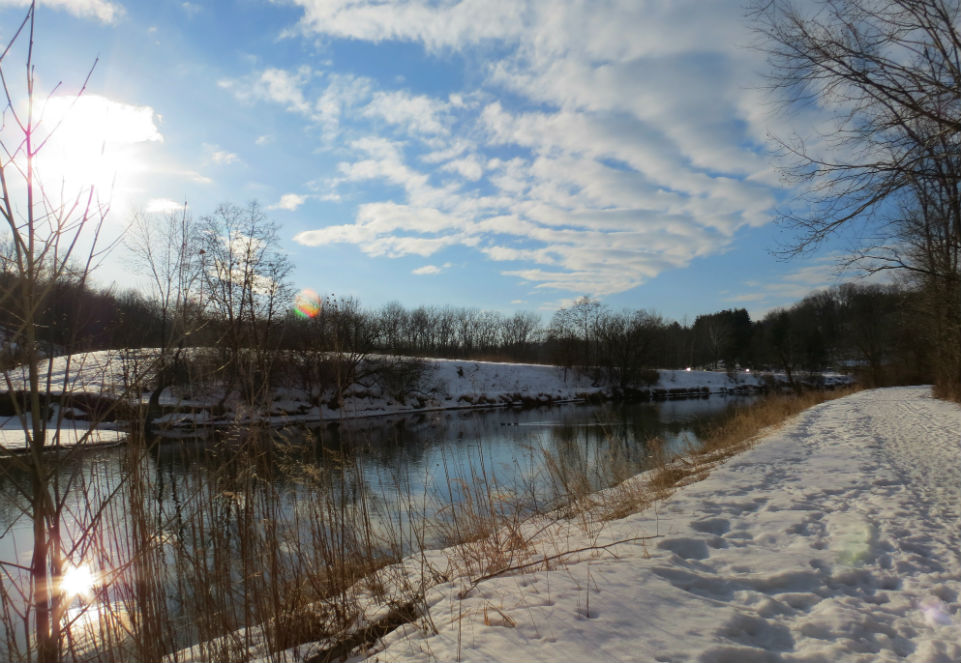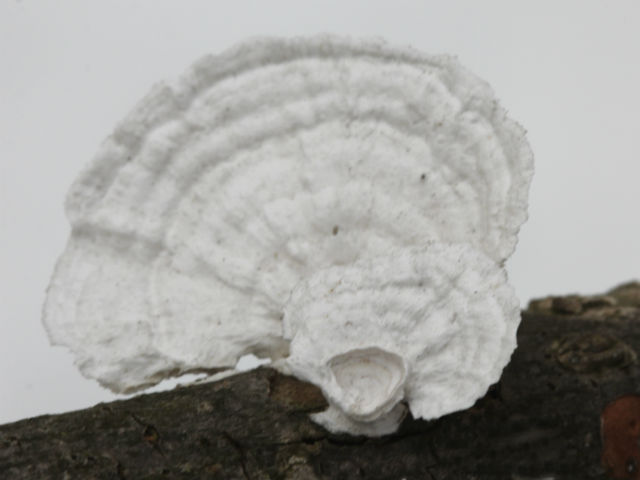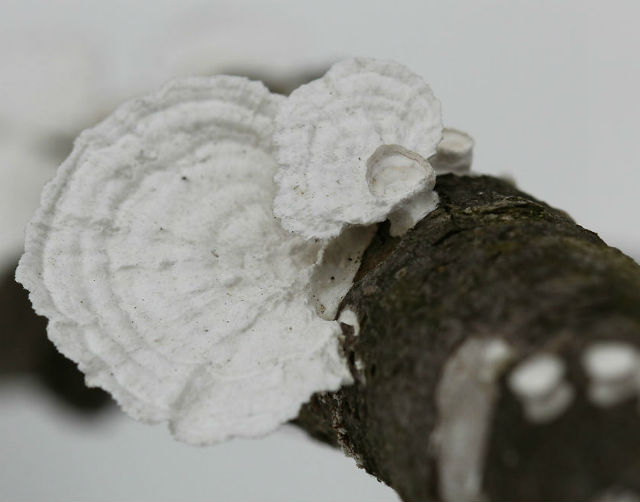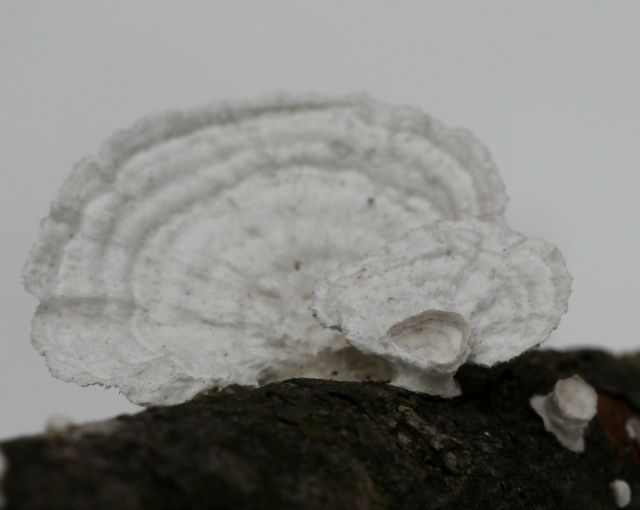As Winter comes to a close and I walk through the woods, I occasionally encounter Little Nest Polypores, which blend in with the snow. The cap of this mushroom is about 1-2 inches wide and is thin, fan-shaped and white.
This common fungus grows “splash cups,” which are round hollow areas that contain spores. The spores are splashed out by falling rain to distribute them in other places and start new polypores.
Its habitat is woodland forests and rather than growing on trees, it is usually found on small sticks. Polypores are also called bracket fungi, and their woody fruiting bodies (the only part of that organism one typically sees) are called conks.
Polypores are among the most efficient decomposers of the main components of wood. Through decomposing tree trunks, they recycle a major part of nutrients in forests. Because of this, the nutrient cycle continues, and the forest remains alive and diverse.




